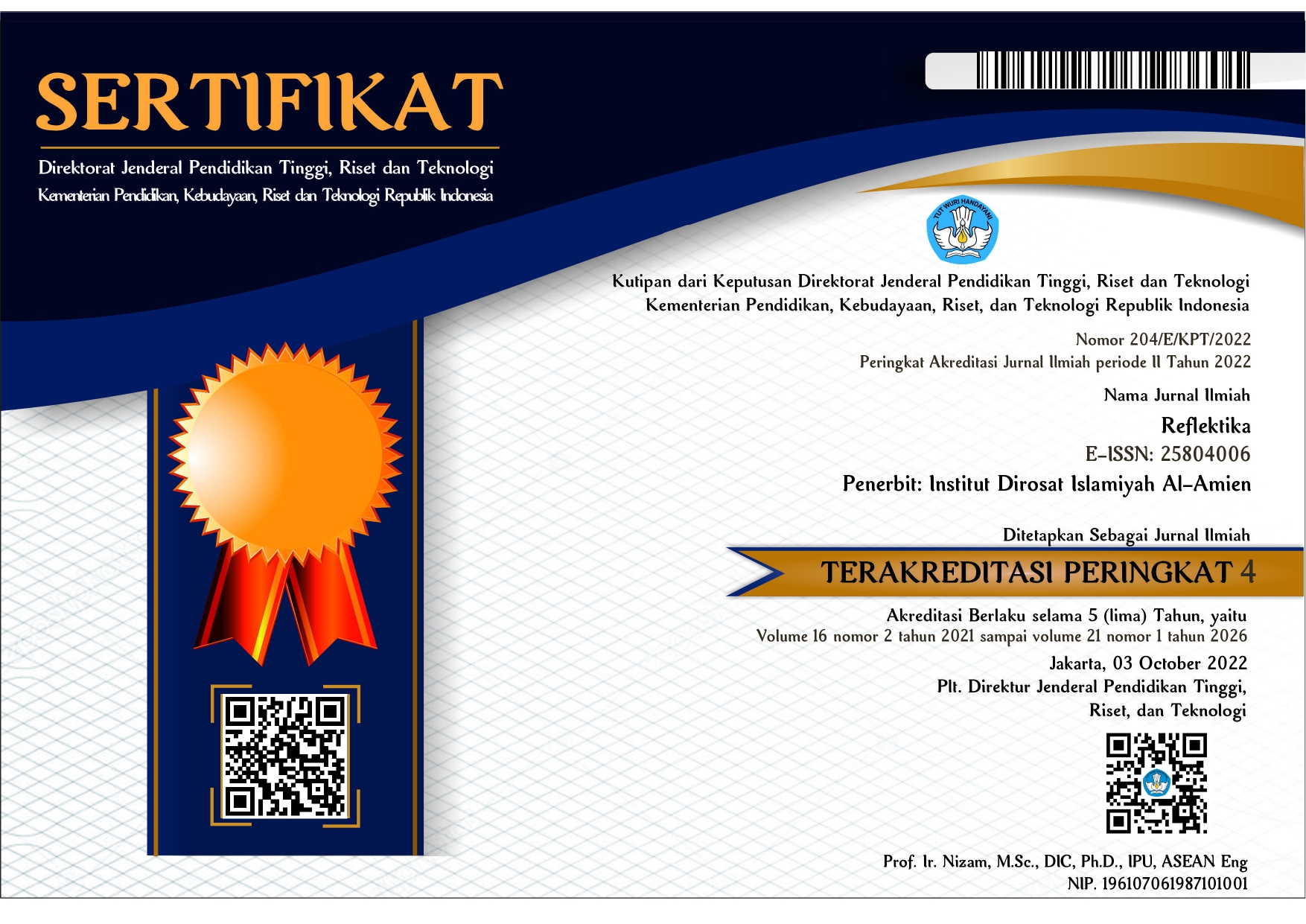KAPITALISME, PROFESIONALISME DOSEN, DAN PERAN PEMERINTAH PADA PENDIDIKAN TINGGI
Abstract
The purpose of this paper is to examine the dynamics of higher education in the flow of capitalism. After conducting a library study, the following are some indicators in education in the USA. In educational capitalism, there is a need for government contributions in terms of funding as is done in several countries that adhere to capitalism, including the USA. On the other hand, it is also necessary to pay attention to satisfaction in higher education, measured by customer satisfaction. The performance and quality of lecturers is the focus. Variables that are important are individual variables, psychological variables, and organizational variables.
Keywords
References
Greg Russell, Bentuk Pemerintahan Berdasarkan Konstitusi (terj.), Demokrasi, Office of International Information Programs, US. Dept. of States., tanpa tahun.
Gybson, 1996. Organisasi Perilaku, Struktur, Proses, jilid 2, Bandung. Erlangga.
James W. Wagner, 2005. What Is A Large, Private Research University?, US Society and Values, e-journals of the U.S.. Department of State, , vol 10 no. 2, November 2005.
Judith S. Eaton, An Overview of U.S. Accreditation, publication of Council for Higher Education Accreditation, tanpa tahun .
Sheila Slaughter dan Larry L. Leslie, 1997, Kapitalisme Akademis. Maryland: Johnson Upkin University Press
Mahmudi. 2005. Manajemen Kinerja Sektor Publik, Yogyakarta. Akademi Manajemen Perusahaan YKPN.
Margaret S. Branson, 2000. At The Core Of U.S. Education, A Passion For Learning, US Society and Values, e-journals of the U.S.. Department of State, vol 5 no. 2, June 2000.
Martina Schulze, 2005. Possible Sources Of Financial Aid, US Society and Values, e-journals of the U.S.. Department of State, , vol 10 no. 2, November 2005.
Mathis,RL. & Jackson, JH. 2006, Manajamen Sumber Daya Manusia, Jakarta. PT. Salemba Emban Patria.
Miarso, Y. 2005. Menyemai Benih Teknologi Pendidikan. Jakarta. Prenada Media,
Muchlas M. 1999. Organisasi 1 , Organizational Behavior , UGM, Jogjakarta.
Ratnawati, Y. 2002. Motivasi Faktor Kunci Untuk Meningkatkan Kinerja Organisasi . Jurnal Poltek Yogjakarta. : 1(2) :1-6
Richard C.Schroeder, 2000. Garis Besar Pemerintahan Amerika Serikat (terj.), Office of International Information Programs – United States Dept. of States.
Robbins, S.P. 2003. Perilaku Organisasi, Edisi Indonesia, Indeks Kelompok Gramedia.
Robert H. Bruininks, 2005. Public Universities In The United States, US Society and Values, e-journals of the U.S.. Department of State, , vol 10 no. 2, November 2005.
Sastrohadiwiryo. 2005. Manajemen Tenaga Kerja Indonesia, Pendekatan Administratif dan Operasional. Bumi Aksara. Jakarta.
Simamora, 2004, Manajemen SDM, Sekolah Tinggi Ilmu Ekonomi. Yogyakarta YKPN.
Simon.A.,& Shcuster. 1998. Manajemen Sumber Daya Manusia Jilid 2,AlihBahasa Benyamin Molan, Jakarta. PT Dadi Karyana Abadi.
The center on Education Policy, Washington D.C. 2000. The Federal Role in US Education, US Society and Values, e-journals of the U.S.. Department of State, vol 5 no. 2, June 2000.
Tiffany Danitz, 2000. The Standards Revolution In U.S. Schools, US Society and Values, e-journals of the U.S.. Department of State, vol 5 no. 2, June 2000.
DOI: 10.28944/reflektika.v14i2.1032
Refbacks
- There are currently no refbacks.


.png)

